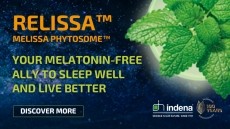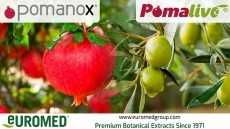Cola copy-catting may foil Red Bull
mimic the success of their pioneering energy drink, according to an
industry analyst.
The Austrian beverage giant's move into the highly competitive market will present a series of very different challenges from those Red Bull confronted when it set out to develop a market for energy drinks in the western world about 20 years ago. Me too So says Julian Mellentin, author and editor of monthly trade journal New Nutrition Business, who notes Red Bull's initial success was built upon an innovative, high-risk strategy that is not being pursued with its latest venture. "Red Bull's success was based on creating a new category, bringing the consumer a new benefit and strongly differentiating themselves from every other beverage available at that time," he told NutraIngredients.com. "Red Bull cola is a me-too - in fact a me-too to the me-toos. There's nothing original or innovative about this brand extension. It brings no new benefits to the consumer." Red Bull would argue that the presence of all natural ingredients including cola nut and cocoa leaf would be a point of differentiation and justify the premium it is charging for the product that is being launched in the UK, Austria, Switzerland, Italy, Ireland and Russia this month and next with the US to follow in June. Red Bull cola contains more caffeine than Coke or Pepsi and retails for $1.49 (€0.94) in the US. Slim sales? For Mellentin, 'natural'-based messaging from Red Bull is only going to alienate potential and existing consumers, not to mention confuse them. "If it's 'strong and natural' that sounds like 'a natural alternative to Red Bull' - which won't appeal to many existing Red Bull consumers while association with the Red Bull name will be a turn-off to the natural food consumers," he observed. "Red Bull cola is a bad idea all round. Every study done by business schools and food companies shows that brand extensions very, very rarely work. Look at Virgin Cola - a spectacular failure." Red Bull cola is packaged in an iconic 250ml slimline can that has come to define the energy drinks sector. The price and sophisticated design and marketing of the product indicate Red Bull are targeting an older crowd than the younger demographic that has so embraced the energy-boosting 'Red Bull Gives You Wings' slogan and led some to call it the coca-cola of the 21st century. But Mellentin remains unimpressed with Red Bull cola. "Maybe their logic is that they can use their massive distribution muscle to shift the product. Maybe. But more likely maybe not. They wouldn't be the first company to make that mistake." Cola crisis The fact the cola market has been shrinking in many western markets including the US as consumers shift their preferences to options like juices, waters, teas, functional waters and other carbonated options such as, ironically enough, energy drinks, presents an additional challenge for Red Bull. Coca-Cola sales fell three per cent in the US last year, while Pepsi dipped 4.8 per cent. At the same time energy drinks jumped 30 per cent, Red Bull's 35 per cent. Mellentin is not the only one who feels Red Bull cola is facing an uphill struggle with its cola extension. "It's going to take more than a lot of energy to be successful in colas against Coke and Pepsi," said Beverage Digest editor, John Sicher. "Others have tried without much success. Red Bull's a terrific brand, but Coke and Pepsi have extremely strong cola brands, and Red Bull will have real challenges making any kind of dent." However one beverage blogger said, "Red Bull could present the most serious challenge to the cola leadership of Coke and Pepsi in a long time - possibly ever. With Coke and Pepsi both experiencing significant declines in sales last year, this could be the perfect time to kick them while they're down." Energy boom Red Bull has been pivotal in developing the energy category that has become one of the most successful and fast-growing in functional foods. Zenith International put the European market at €3.1bn in 2006. The US energy drink market reached €3.7bn in 2006, according to Packaged Facts and will grow to €6.3bn by 2011. The sector has benefited from widespread energy deficits and the relative ease with which selected stimulant ingredients such as caffeine, guarana and taurine can be incorporated into products.












